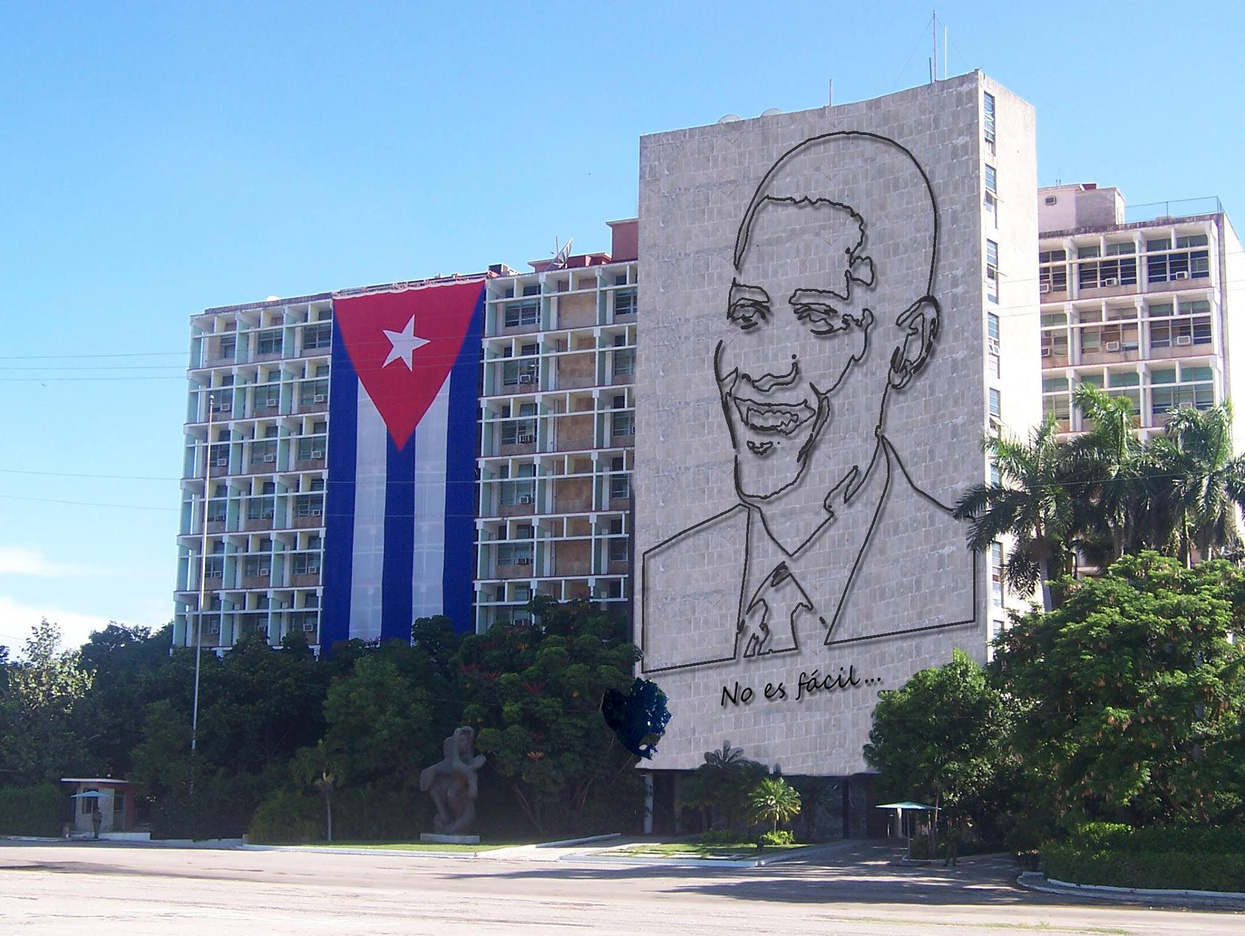Mediascapes of Postsocialism: Cuban New Media Cultures After the End of History

A History & Theory of New Media lecture, presented as part of BCNM's Latinx & Latin American Media Ecologies program, co-sponsored by the Center for Latin American & Caribbean Studies (CLACS) and the Center for Science, Technology, Medicine, and Society (CSTMS)
with Paloma Duong
Associate Professor of Latin American and Media Studies, Massachusetts Institute of Technology
What do our political alternatives look like after “the end of history”? Any critical approach to that question must consider how the Cold War legacies of red-washing and red-baiting are redeployed as well as challenged across global and participatory new media landscapes. This talk unpacks some of the challenges involved in this task by analyzing how media representations and cultural practices in Cuba, in the Cuban diaspora, and in the broader Latin American and Latinx context respond to the global postsocialist condition, that is, to the historical moment when new declarations of the death of socialism coincide with the reemergence of anticapitalist demands. Looking at a wide range of postsocialist cultural artifacts—from music to memes—I will examine why Cuban socialism endures as an object of international political desire while images of capitalist markets consume Cuba’s national imagination. These competing political narratives and images about the communist past and the capitalist present register lived experience at a crossroads between the failures of the nation-state and the promises of global markets. They also speak to our shared postsocialist dilemmas: after the 1989-1991 collapse of the socialist bloc, the 2008 crisis of global markets reinforced the impasse between a world where there seems to be no alternative to capitalism and one where we continue to confront the same historical conditions—flagrant inequality, violent dispossessions, planetary destruction, political disenfranchisements, permanent war, forced displacements—that yield, now under a myriad of clashing ideological banners, a politics of insurgency left and right. A critical engagement with cultural representations of communism and capitalism allows us to wrestle away popular demands and desires from their hegemonic articulations through statist and/or corporative tropes. It also renders Cuban postsocialism as an urgent and indispensable referent for core debates on the politics of participatory cultures in new media studies. I will suggest that this comparative analysis of postsocialist imaginaries can offer us critical tools to reevaluate the legacies of socialist media theories and their relevance to our pursuit of an alternative political imaginary.
About Paloma Duong
Paloma Duong is Associate Professor of Latin American Studies and Media Studies at MIT, where she researches and teaches Latin American culture from an interdisciplinary perspective in dialogue with cultural studies, media theory, and political philosophy. Her investigations focus on the role of cultural and media practices in the emergence and transformation of political imaginaries of social change in 20th and 21st century Latin America. Her book Portable Postsocialisms: New Cuban Mediascapes after the End of History (University of Texas Press 2024) is a study of Cuba’s changing media cultures and an inquiry on the global postsocialist condition and its contexts, at a time when the end of twentieth-century socialist state projects coexists with the rise of anticapitalist movements worldwide. Her articles have appeared in the Journal of Latin American Cultural Studies, Art Margins, Revista Hispánica Moderna, and Cuban Counterpoints: Public Scholarship about a Changing Cuba.
More Info
Click here for the full 2023-24 History and Theory of New Media season.
Click here for the full 2023-24 Latinx & Latin American Media Ecologies season.
Accessibility
BCNM events are free and open to the public. This event will be held in-person, on the UC Berkeley campus. We strive to meet all access and accommodation needs. Please contact info.bcnm [at] berkeley.edu with requests or questions.
BCNM is proud to make conversations with leading scholars, artists, and technologists freely available to the public. Please help us continue this tradition by making a tax-deductible donation today. If you are in the position to support the program, we suggest $5 per event, or $100 a year.
